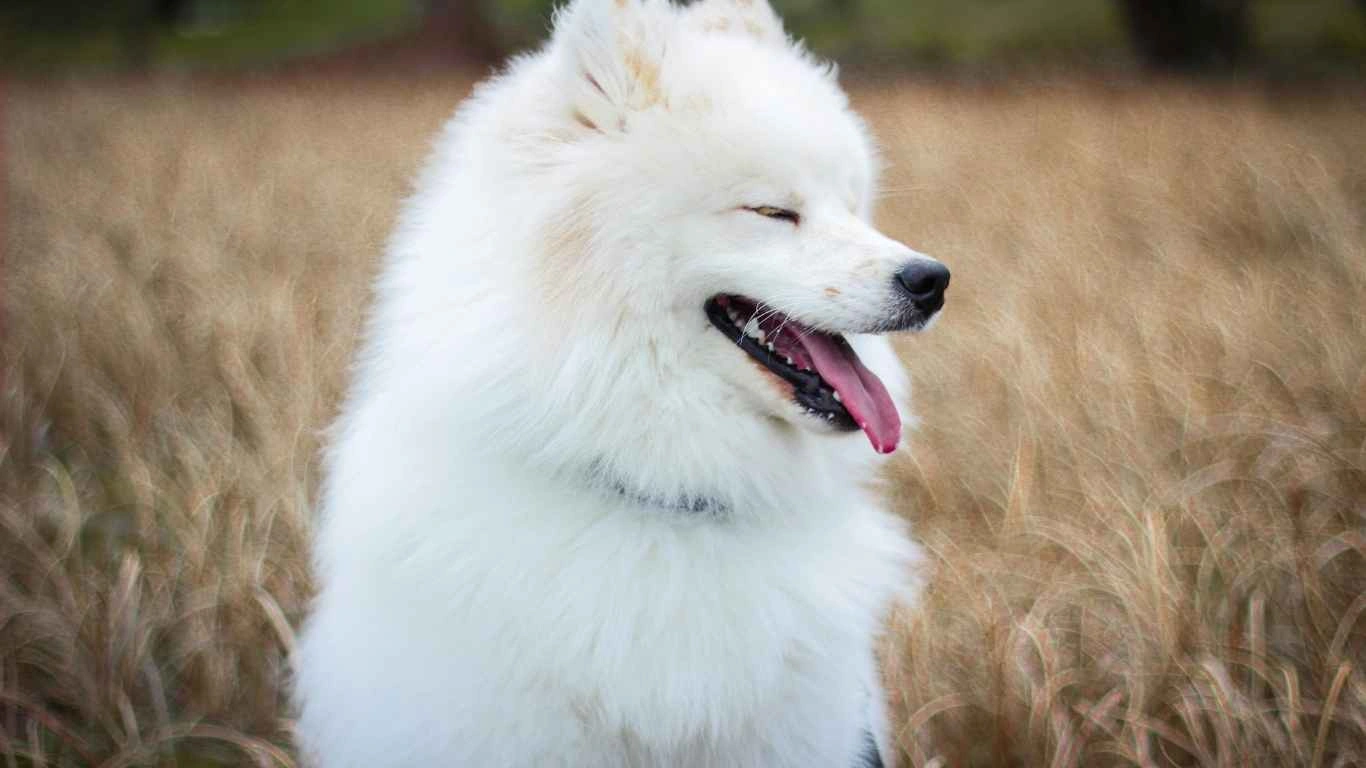Can Dogs Eat Watermelon Seeds? The Hidden Dangers Every Owner Should Know
As an Animal Care Specialist, I’ve spent a lot of time observing how dogs interact with different foods. One of the most common questions I get asked by pet owners is: “Can dogs eat watermelon seeds?” It’s understandable why people would wonder about this, especially since watermelon is a refreshing and healthy treat for humans. But when it comes to our canine companions, things can get a little tricky. So, let’s dig in and explore whether it’s safe for your furry friend to enjoy watermelon seeds or if they should be avoided entirely.
Can Dogs Eat Watermelon Seeds? The Short Answer
To answer the burning question upfront: no, it’s generally not recommended for dogs to eat watermelon seeds. While watermelon itself is a great, hydrating snack for dogs when served in moderation, the seeds can pose certain risks. Let me explain why.
Watermelon seeds aren’t toxic to dogs, but they can be a choking hazard or cause digestive issues if consumed in large amounts. Dogs can sometimes struggle to break down the seeds, which might lead to an upset stomach, bloating, or even blockages in the digestive system. As a pet owner, it’s always best to play it safe and remove the seeds before offering watermelon to your dog. Plus, a seedless watermelon is just as tasty, so there’s really no need to risk it!
Why Are Watermelon Seeds Dangerous for Dogs?
Watermelon seeds aren’t poisonous, but they still pose several risks that could harm your dog’s health. Let’s take a closer look at why watermelon seeds should be avoided:
- Choking Hazard: For smaller dogs, watermelon seeds can easily become a choking hazard, especially if they’re swallowed without being properly chewed.
- Digestive Issues: Dogs have sensitive stomachs, and consuming watermelon seeds can lead to digestive upset. It could cause your dog to experience vomiting, diarrhea, or even more severe conditions like intestinal blockages.
- Blockages in the Digestive Tract: In some cases, watermelon seeds can get lodged in the intestines, creating an obstruction. This requires immediate medical attention, as it can be life-threatening if not treated promptly.
Given these risks, it’s easy to see why removing the seeds from watermelon before sharing it with your pet is the safest choice.
The Benefits of Watermelon for Dogs

Now, just because watermelon seeds are off the table doesn’t mean you can’t still share the juicy, refreshing fruit with your dog! In fact, watermelon has several health benefits for dogs, which is why I’m often asked about it. When served properly, watermelon can be a delicious and hydrating snack that’s safe for your dog to enjoy.
1. Hydration: The Ultimate Summer Treat
Watermelon is made up of about 92% water, making it one of the most hydrating fruits available. Since dogs can sometimes be picky about drinking enough water, especially during the hotter months, watermelon can be a fantastic way to keep them hydrated. I’ve noticed that many dogs love the sweet, juicy taste of watermelon, and it’s an excellent way to keep them cool during summer walks or outings.
2. Rich in Nutrients
Watermelon isn’t just water; it also packs a punch of nutrients that can benefit your dog’s overall health. Some of the vitamins and minerals in watermelon include:
- Vitamin A: Good for maintaining healthy skin and eyes.
- Vitamin C: Boosts the immune system and helps with tissue repair.
- Potassium: Aids in proper muscle and nerve function.
- Magnesium: Supports energy production and bone health.
While your dog doesn’t need these nutrients in the same quantities as humans, watermelon can still be a nice supplement to their regular diet. It’s low in calories and packed with water, so it’s a great option for dogs who need to stay hydrated or for those watching their weight.
Can Dogs Eat Watermelon Rind?

Now, before you throw that watermelon rind away, you might be wondering if it’s safe for your dog to eat. The rind is a bit more complicated. While it’s not toxic, it’s tough for dogs to digest and could lead to gastrointestinal upset if consumed in large amounts. The rind is also another potential choking hazard, so it’s best to avoid giving it to your dog altogether.
In general, if you want to share watermelon with your dog, it’s best to stick to the flesh of the fruit. Just remove any seeds or rind, and cut the watermelon into small, manageable pieces for your dog. This ensures they’re getting the benefits of the fruit without any of the risks associated with the seeds or rind.
How to Safely Serve Watermelon to Your Dog
If you’re planning to offer watermelon to your dog, it’s essential to do so in a way that minimizes any risks. Here are some tips on how to safely serve watermelon to your pet:
- Remove the Seeds: This is the most important step! Make sure you remove all the seeds from the watermelon before offering it to your dog.
- Cut into Small Pieces: Cut the watermelon into small, bite-sized pieces to avoid any choking hazards, especially if you have a small dog.
- Limit Portion Size: Watermelon is great as a treat, but it should be given in moderation. Too much watermelon can lead to diarrhea or stomach upset, so only offer small amounts at a time.
- Supervise Your Dog: Always keep an eye on your dog while they enjoy their watermelon snack to make sure they don’t accidentally choke on any pieces.
By following these simple guidelines, you can ensure that your dog enjoys watermelon safely and reaps the benefits of this hydrating, nutrient-packed fruit.
Are There Any Differences Between Black and White Watermelon Seeds?

This question actually came up during a consultation I had with a pet parent just last week. They were curious if the tiny white watermelon seeds—those soft, immature ones—were safer than the big black ones. And honestly, it’s a good question because not all seeds are created equal when it comes to dogs.
The white seeds are basically immature versions of the black ones, and yes, they are usually softer and easier to digest. That being said, I still don’t recommend letting your dog munch on them. While one or two soft seeds might not cause harm, they could still add up if your pup is really enthusiastic about their snack. In my experience, dogs tend to gobble down whatever you hand them without much chewing, so even small seeds could become problematic.
Bottom line? It’s still best to remove all seeds—white or black—just to be on the safe side.
Signs Your Dog Might Have Eaten Too Many Watermelon Seeds

If you’re reading this because your dog already got into some watermelon seeds, don’t panic. One or two seeds isn’t usually a cause for concern—especially for larger dogs—but it’s good to be aware of warning signs in case they ate more than a few.
Symptoms to Watch Out For
- Vomiting or nausea: Your dog might throw up or act like they’re going to.
- Lethargy: If they seem overly tired, sluggish, or “off,” it could be a red flag.
- Loss of appetite: If your pup refuses food (especially if they’re usually food-motivated), something could be wrong.
- Abdominal pain: Dogs may whine, avoid being touched, or stretch oddly if their stomach is bothering them.
- Constipation or straining to poop: Seeds can block things up, especially in small breeds.
If your dog shows any of these signs and you suspect they got into watermelon seeds, it’s worth calling your vet. I’ve had pet parents bring in their dogs thinking it was “just a little fruit,” and it turned out to be a seed blockage. Trust your instincts—better safe than sorry.
Other Fruits with Seeds You Should Be Careful With

This whole watermelon seed situation got me thinking—there are actually several other fruits that dog parents should be cautious about for similar reasons. Seeds and pits can be sneaky sources of trouble. Here’s a quick rundown of some common ones to watch out for:
1. Apples
Apples are a popular treat, but their seeds contain cyanide in small amounts. A few seeds probably won’t hurt your dog, but it’s not something you want them eating regularly. Core the apple and remove the seeds before sharing.
2. Cherries
Cherry pits are big no-nos. Not only do they pose a choking hazard, but they also contain cyanogenic compounds, just like apple seeds. Definitely not worth the risk.
3. Peaches, Plums, and Apricots
Same story here. These fruits have large pits that are both choking hazards and potentially toxic. The flesh is okay in small, seed-free portions, but the pit must go.
4. Grapes and Raisins
Okay, these don’t have seeds, but I have to mention them because they’re super toxic to dogs. Even a small amount can cause kidney failure. Just steer clear of these altogether.
5. Avocados
Avocados contain persin, which can be harmful to dogs in large amounts, and the giant seed is a definite hazard. While some dogs can tolerate avocado flesh in tiny portions, it’s not something I’d recommend unless advised by a vet.
Healthy Alternatives to Watermelon for Dogs
If you want to mix up your dog’s fruit treats and keep things safe, here are a few other vet-approved fruits I’ve personally seen dogs go wild for (and that I’ve handed out more times than I can count):
- Blueberries: Antioxidant-rich and perfect for training treats.
- Bananas: Great for digestion, just serve in moderation due to sugar content.
- Strawberries: Dogs usually love the sweet taste, and they’re easy to prep seed-free.
- Apples (seedless): A classic crunchy snack—just ditch the core and seeds.
- Cantaloupe: Similar to watermelon in texture and hydration value, minus the seed worry if cleaned properly.
Whenever I’m prepping snacks for shelter pups or clinic regulars, I always keep a stash of washed, sliced fruit on hand. It’s such a great way to add variety to their day, especially for dogs on prescription diets who can’t have typical dog biscuits or treats.
Tips for Making Fruit Snacks More Fun
If you’ve got a picky eater or just want to turn treat time into something special, here are some fun ideas I’ve picked up over the years. These are a hit with almost every dog I’ve worked with:
- Freeze fruit cubes: Blend watermelon and freeze it into silicone molds—makes for a hydrating summer treat.
- Stuff in a Kong: Mix small fruit pieces with plain yogurt and stuff into a Kong toy. Freeze for extra longevity.
- Use as training treats: Soft fruits like bananas or strawberries can be cut into tiny bits and used during obedience training.
- Make a fruit salad: Combine safe fruits and serve as a once-a-week “dessert.”
Just make sure to go easy on the quantities—fruits are high in sugar and should stay a special treat, not a daily staple.
So, whether you’re using watermelon as a reward, a hydration booster, or just a fun way to bond, it can be an awesome part of your dog’s snack lineup—as long as you keep those pesky seeds out of the picture.
What Should You Do If Your Dog Eats Watermelon Seeds by Accident?

Even with the best intentions, accidents can happen. Maybe your dog grabbed a piece of watermelon off the counter, or you didn’t realize a few seeds were left in a piece you gave them. If your dog has accidentally eaten watermelon seeds, it’s important not to panic. In my experience, most cases don’t result in serious issues, but it’s still worth keeping a close eye on them.
Here’s What You Should Do:
- Stay Calm: The first step is not to freak out. As I’ve mentioned earlier, watermelon seeds aren’t toxic. Usually, they’ll pass through your dog’s digestive system without causing major harm.
- Monitor Their Behavior: Keep a close eye on your dog for the next 24 to 48 hours. Watch for any signs of discomfort such as bloating, vomiting, or changes in their stool.
- Check Their Poop: You can even check their stool (yep, it’s a little gross, but it helps!). If you spot a seed in their poop, that’s a good sign that their body is passing it without issues.
- Call Your Vet If Necessary: If your dog shows any symptoms like extreme lethargy, vomiting, or if they seem to be having trouble passing stools, give your vet a call. Even though seeds aren’t typically a big deal, it’s better to be safe and get professional advice.
Over the years, I’ve found that most dogs recover just fine from eating watermelon seeds. However, if you notice any concerning signs or if your dog has eaten a large amount of seeds, definitely get in touch with your vet to be on the safe side.
When to Consult Your Veterinarian
As much as we love to spoil our dogs with tasty snacks, there are times when you need to involve a vet, particularly if you’re worried about any aspect of their health. Here are a few scenarios when it’s essential to seek professional help:
- Vomiting or Diarrhea: If your dog starts vomiting or has prolonged diarrhea after eating watermelon seeds, this could be a sign of digestive distress or even a blockage. Don’t wait—call your vet right away.
- Signs of Bloating or Abdominal Pain: If your dog’s belly looks swollen, and they seem to be in pain or are acting more lethargic than usual, it could be a blockage. In that case, prompt action is important.
- Difficulty Pooping or Constipation: If your dog’s having trouble going to the bathroom or straining while pooping, that’s another red flag that something may be stuck in their intestines.
- Behavioral Changes: Any sudden change in behavior, like your dog suddenly refusing food or drinking less water, is something worth checking out with your vet.
At the clinic, I’ve seen cases where owners have caught issues early, which made treatment a lot easier. The faster you act, the better the outcome for your dog. Remember, vets are there to help, and they’ve seen it all before.
Watermelon Seeds: Can They Be Safe in Special Circumstances?
Now, you might be wondering if there are ever any situations where it’s okay for dogs to eat watermelon seeds. In general, the answer is no, it’s best to avoid them. However, there are always exceptions to the rule when it comes to certain breeds or individual health conditions.
Small Amounts in Certain Situations
In my experience, if your dog happens to eat a tiny amount of seeds, especially if they’re not causing any symptoms, it’s unlikely to cause harm. Some dogs may even pass watermelon seeds without any trouble at all. But the key here is moderation. A few seeds every now and then probably won’t cause any harm, but it’s definitely not a habit you want to encourage.
If your dog has a sensitive stomach or is prone to digestive issues, I’d recommend keeping watermelon to just the flesh and avoiding the seeds entirely. For dogs with food sensitivities or chronic health conditions, it’s always best to consult with your vet before introducing new treats or snacks into their diet.
What About Seedless Watermelon?
If you’re set on giving your dog some watermelon, you might want to consider the seedless variety. While seedless watermelons are commonly available at most grocery stores, there’s a small catch: they often have very small, soft seeds that are almost undetectable. These seeds aren’t harmful and can usually be safely consumed by your dog, but I still suggest removing them just to be on the safe side.
If you’re feeling extra cautious, go for a fully seedless watermelon and remove any small seeds you find. This way, you can safely share a juicy watermelon treat with your dog without the worry of choking or digestive issues.
References
Disclaimer
All the information in this article is based on my experience as an Animal Care Specialist. While the details provided are generally safe guidelines for most dogs, every dog is unique. Always consult with your veterinarian before introducing new foods or treats into your pet’s diet, especially if they have any existing health conditions. The health and well-being of your pet should always be the priority. This article is not a substitute for professional veterinary advice, diagnosis, or treatment.
Thanks for taking the time to read! I hope this helps answer your questions about watermelon seeds and gives you the knowledge to keep your dog safe while still enjoying tasty treats. Stay tuned for more tips and tricks on keeping your furry friends happy and healthy!






